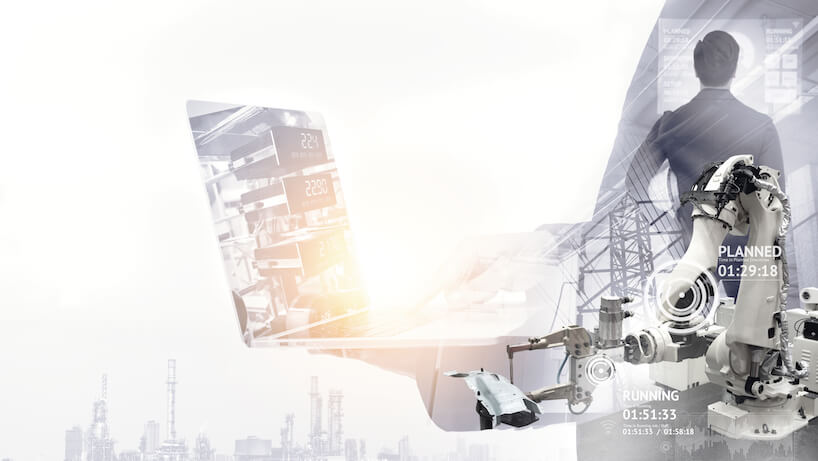The rise of driverless cars, the acceptance of 3D-printed food, the decline of traditional four-year degrees — the future of the world will be shaped by movements that might sound far-fetched today. But what will all these changes mean for business events? As technology continues to transform our expectations and behaviors, I caught up with Marc Pomerleau, vice president of global strategy at FreemanXP, for a sneak peek into the near future. Cofounder of three tech start-ups, global traveler, slam poet, and aikido black-belt holder, Pomerleau is one of the most creative voices in the events industry. In fact, the long-table session format I saw him lead last year is one of the most inviting educational conversation-starters I’ve seen.
As you look ahead to engaging attendees and retaining employees, consider these four key insights from Pomerleau.
1) The Definition of Continuing Education Will Change.
Credits, clock hours, post-secondary courses — no matter how an organization describes continuing-education credits, earning them isn’t exactly a big challenge in many cases. “Right now, I can walk into a ballroom and get my badge scanned,” Pomerleau said. “Then, I can sit there, totally tune out, leave, and get credit for my attendance. This approach to gaining knowledge no longer works.
“In the new world, our ability to thrive depends on our willingness to contribute,” Pomerleau continued. “You can watch all the content that falls under the current ‘CE’ bucket online by yourself. At meetings and conferences, organizers must challenge attendees to actually do something with those insights.”
Forget earning one credit for staring at a keynote speaker, another credit for watching a 45-minute panel discussion, and another credit for entering an exhibit hall. Instead, Pomerleau believes that the next iteration of CE will be fueled by environments in which attendees can debate, challenge each other’s opinions, and chase bold missions to impact the world. “When we get together,” Pomerleau said, “we should be activating the chemistry of human interaction that can ignite new solutions and new ideas.”
2) Robots Will Give Humans More Room for Revolutionary Ideas.
As all those human attendees come together, a cast of non-human workers will join them. According to the Robotic Industries Association, North American companies ordered more than 31,000 robots in 2015, and that number is poised for continued growth. Imagine an event at which such tasks as cleaning session rooms, moving AV equipment, and delivering water bottles for speakers are completed by robotic assistants.
Some voices in the tech world such as Elon Musk have been outspoken in their fears of robotic intelligence, but Pomerleau believes that automating some of these tasks paves the way toward a much brighter tomorrow. “We are designed to do greater things,” Pomerleau said. “When you think about the potential for us as a species, how could you not want robots to take over some of those tasks?”
3) More People Will Be Their Own Bosses.
As robots assume some responsibilities, it will give more people the freedom to pursue careers outside the traditional boundaries of established organizations. By 2020, an estimate from PeoplePerHour forecasts that half of workers will be freelancers. This raises a big question: If many attendees currently rely on their employers to foot the bill for continuing professional-development opportunities, will they pay their own way to participate in conferences and meetings? Pomerleau believes that the answer is yes.
“If I’m not commuting to work and paying to repair my car and I’m not buying suits and ties to adhere to some kind of office dress code, that money gets reallocated,” Pomerleau said. “And as we stay at home with digital technology, it creates a heightened need for ceremony and ritual that you can’t get from a screen.”
Pomerleau pointed to music festivals as an example. “You don’t have to go to festivals,” he said. “In fact, you can live-stream the entire show in your living room, but people go to these festivals because they’re well done. They give them something they can’t find on a screen.”
4) Successful Organizations Will Give up Control.
As many people embark on journeys to work on their own, Pomerleau believes that the movement is part of a larger shift toward a need for individual freedom and personalization — both in the workplace and also in the event environment. “So many organizers and employers are still carrying a paternal view of owning content,” Pomerleau said. “The reality is that organizations don’t own anything. Forget the attitude of preserving tradition and controlling information. People are more empowered than ever before.”
While some organizations may want to impose rules (Be in the office by 9 a.m.) and some event organizers may continue to employ an old-school approach (Listen to a subject-matter expert in Room 203 at 9:00 a.m.), that traditional style won’t fuel innovation. “When you truly value people and you trust them,” Pomerleau said, “you’re not afraid to give them control and let them do what they want.”
Interested in more insights to prepare you for the new world? Click here to download “The Future of Brand Experience” from Freeman.

